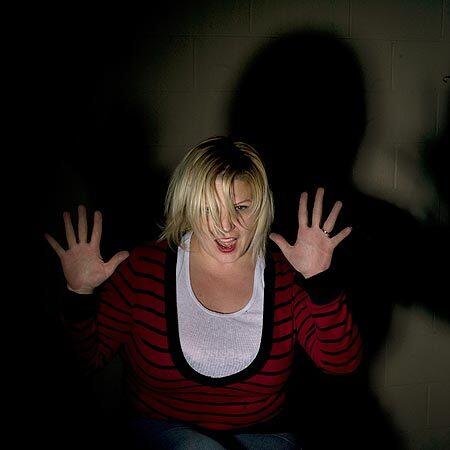Beit T’Shuvah, a Mid-City Los Angeles synagogue and rehab center catering to a mostly Jewish cleintelle, leans on spirituality and the Torah to heal addiction. The facility houses 120 men and women who come from all corners of society. They include heroin junkies, alchoholics, gamblers and sex addicts. Passover was a chance to reflect on how far they’ve come.
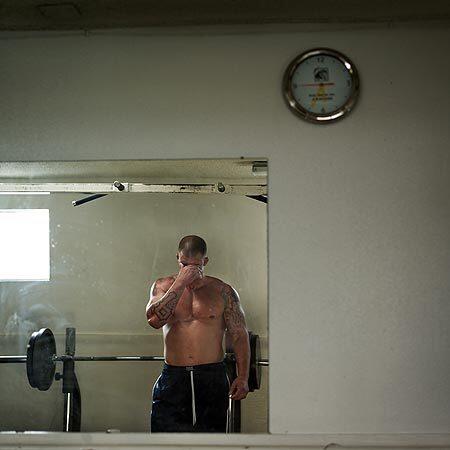
“I like to shoot heroin. I like not to feel. I like to be numb to the world and to myself,” says Alex Saltzman, 32, who became addicted to heroin while serving four years in prison at age 19. “It’s been a nightmare,” says Saltzman, who has been in treatment at Beit T’Shuvah for just over a month. “I just pursued heroin into the gates of hell.” Working out every day and practicing jujitsu have helped give him something to focus on in recovery. “Today I have lots of feelings, lots of emotions, and they scare me. If I can just hang on to the idea, the notion, that I can stay clean today, things will be better tomorrow. It’s not going to happen overnight, but I can see the light.” His intake date was March 2, 2010. (Rick Loomis / Los Angeles Times)
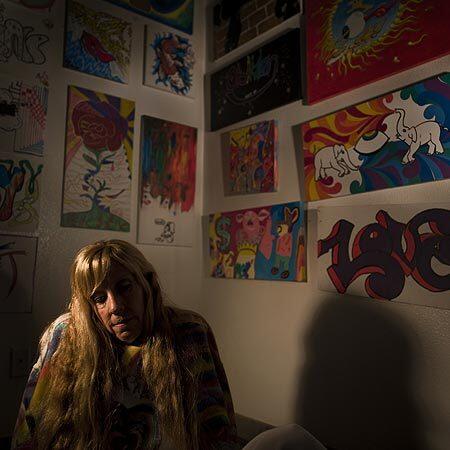
“Art is just an expression, it’s not going to save me,” says Shandra Jai, 58, of Santa Barbara, who is addicted to alcohol and has been out of prison for just five months. She served five years for vehicular manslaughter. “If I get high in the next two years, I go back probably for life.” Jai still paints using the same paints she did in prison and has focused her energy on that and other artistic endeavors. “My mind has got to learn how to be detached from the past and remain in the present and not let the past creep in.” Her intake date was Jan. 2, 2010. (Rick Loomis / Los Angeles Times)
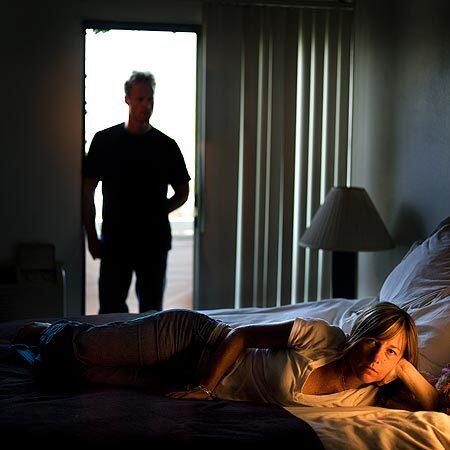
“I took my first drink when I was 12,” says Rachel Lurie. From there she progressed to pot, acid, cocaine and “everything in between.” She bottomed out when she looked in the mirror one day and was disgusted by what she saw. “I knew that if I kept using I was going to die.” She was reclusive when she got to Beit T’Shuvah, keeping her head buried in a hooded sweatshirt. After a few weeks, she found someone she could identify with in Luke Chittick, a fellow resident in recovery and now her boyfriend. “I was his go-to and he was mine. And that saved me here. I definitely would not be where I am today without him.” Lurie now works at Beit T’Shuvah as Rabbi Mark Horovitz’s assistant and shares a room at the facility with Chittick, who also works there. Her intake date was November 24, 2008. (Rick Loomis / Los Angeles Times)
Advertisement
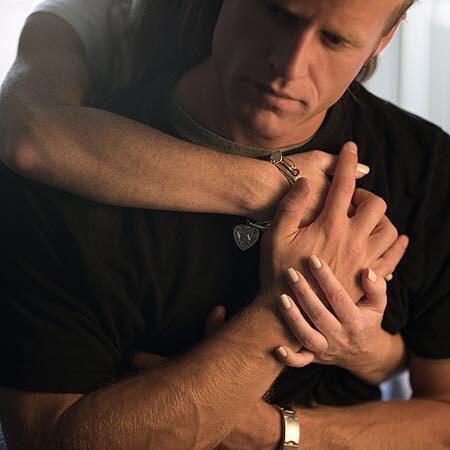
“I couldn¹t stop drinking.” says Luke Chittick of his addiction. “The moment my eyes would open I would start drinking, and I wouldn’t stop until I passed out.” Chittick moved to Los Angeles from the East Coast, and his addiction worsened while he was tending bar. At his lowest he was chasing OxyContin in Mexico and living in seedy motels in the Los Angeles area. “I hated being a drug addict. I really hated it.” Though he isn’t Jewish, Chittick’s brother recommended that he try to get sober at Beit T’Shuvah. “When I got here I didn’t want any type of relationships with anybody. I was convinced I would let anybody down at some point, so why open up to anybody?” In Rachel Lurie, who was also in recovery, he met someone who could identify with him. “She just hung in there with me and helped me realize that I can open up. She just kind of unlocked something in me,” says Chittick. His intake date was November 14, 2008. (Rick Loomis / Los Angeles Times)
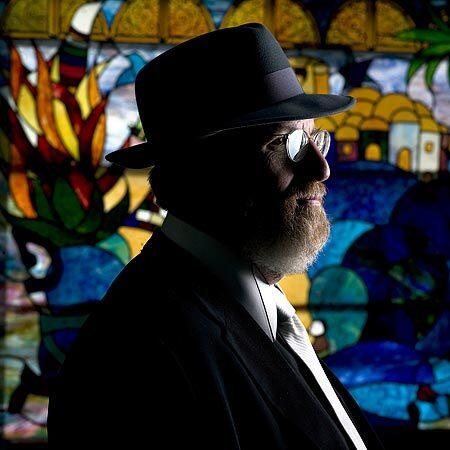
“I ruined many lives,” says Rabbi Mark Borovitz, who was an alcoholic and a swindler in his younger days. “If I could take it from you, I owned it.” He spent time in prison before deciding he needed to return to his spiritual roots. Now he calls Beit T’Shuvah, a Jewish-run synagogue and drug rehabilitation center in Mid-City Los Angeles, his home and counsels a multitude of people on how to kick their addictions and experience a spiritual revival. “I used to hustle for myself,” he says. “Now I hustle for God. What I’m selling is hope, I’m selling God. I’m selling spirit. I’m selling decency. I’m selling living life well.” ( Rick Loomis / Los Angeles Times ) (Rick Loomis / Los Angeles Times)
